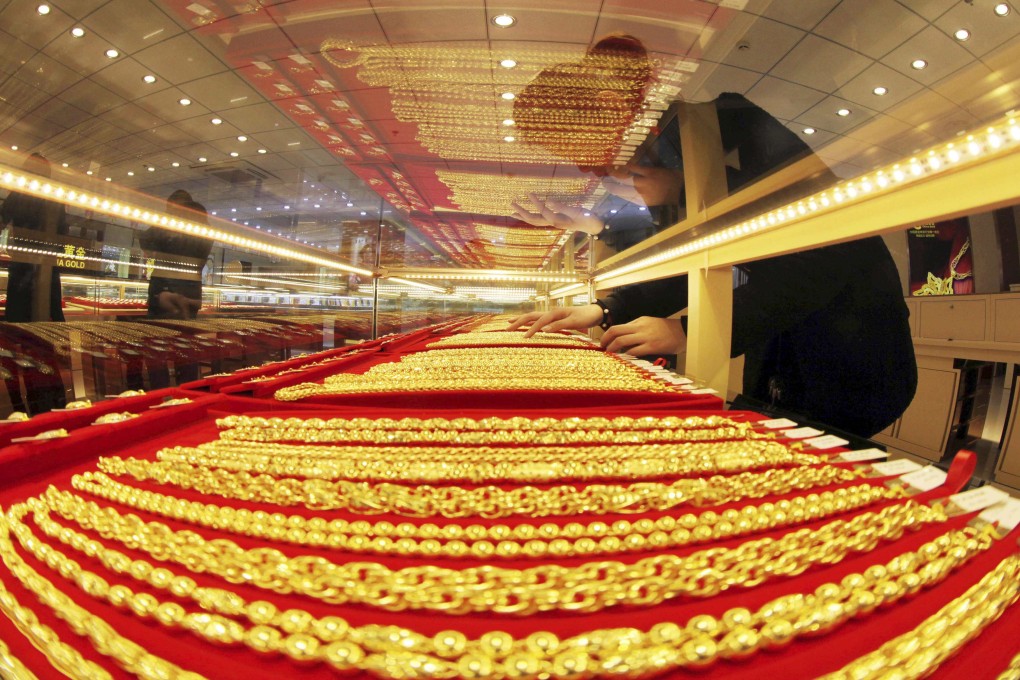China’s corruption crackdown takes shine off sales of gold jewellery
Sales of gold bars – seen as traditional investments and gifts among many Chinese people – have been hardest hit

President Xi Jinping’s anti-corruption campaign, which has banned officials receiving gifts, has led mainland consumers to buy fewer jewellery and gold products in the past year, industry insiders said.
Sales of gold bars – seen as traditional investments and gifts among many Chinese people – have been hardest hit.
However other factors have influenced the decline, too, including the fall in the price of gold and a rally on the stock market that has led mainlanders to invest much of their money in shares, the insiders said.
“There has certainly been a big slump in sales of gold, which is often bought as a gift,” said Wang Ensheng, chief spokesman of Shanghai jewellery company, Lao Feng Xiang.
“The central government’s corruption crackdown has had a lot to do with the drop in sales.
“Generally speaking, other jewellery has been affected, too, but not quite as much as gold.”